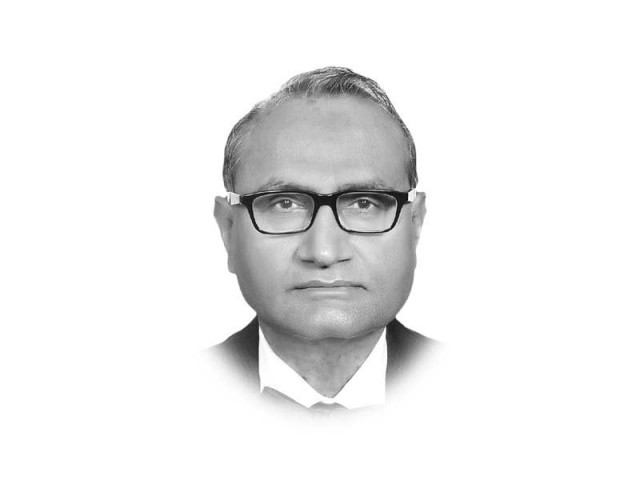The system moves on
The Election Commission of Pakistan, despite its weaknesses, is all geared up to hold elections.

pervez.tahir@tribune.com.pk
This is not an exhaustive list of the difficulties that the democratic transition in Pakistan is going through. Yet, the system is moving on towards elections, the only mechanism known to human history to let the real sovereign — the people — to peacefully throw out and bring in their representatives to serve them. The collective consciousness of the people has dismissed the demands of early elections, the pressures to overthrow the government by staging dharnas and the rumours of a longish technocratic set-up to stage a coup by other means.
The Election Commission of Pakistan, despite its weaknesses, is all geared up to hold elections. It has notified the schedule to elect 52 senators, belying the most popular conspiracy theory. Article 59 (3) of the Constitution says that the “Senate shall not be subject to dissolution,” making it a factor in the continuity of the federation. With the completion of the Senate, the way will be cleared towards the completion of parliament by holding National Assembly elections.
Political transitions, especially in Pakistan, have always been associated with economic meltdown. Oftener than not, this association provided the excuse for the disruption of the political process. Not this time, though. And not because the lesson about the short-term nature of the economic gains during a political pause has been learned. It is because the real economy has continued to be healthy. Information at this point in the fiscal year is available only for important crops and large-scale manufacturing. Both show a respectable growth. These commodity sectors also drive the main components of the services sector. As a result, the year is likely to witness a GDP growth close to 6 per cent. This is what the economists call supply side, which is doing fine. There are problems on the demand side, however. Inflation is inching up, not just because the world oil prices are going up and the rupee is going down.
Nonfood and non-energy inflation exceeds the overall rate of inflation. It has done so for the past several months and is likely to worsen as the political class opens the floodgates of public spending in a bid to buy votes. Although the prime minister will be doing the right thing to implement the much delayed tax reform before the elections, the money for the extra spending will have to come from the printing press. Luckily, however, the controller of the printing press, the State Bank of Pakistan, has begun to exercise its autonomy, first by allowing the rupee to depreciate and now by increasing the policy rate. This is yet another sign that the system is moving ahead.
In 2013, one group of corrupt politicians handed over power to another group. With a repeat of this in 2018, and the expectation of the same in 2023, besides the learning that each institution follows the rules of the game, the need to use public money for private gain would lessen considerably.
Published in The Express Tribune, February 2nd, 2018.
Like Opinion & Editorial on Facebook, follow @ETOpEd on Twitter to receive all updates on all our daily pieces.















COMMENTS
Comments are moderated and generally will be posted if they are on-topic and not abusive.
For more information, please see our Comments FAQ